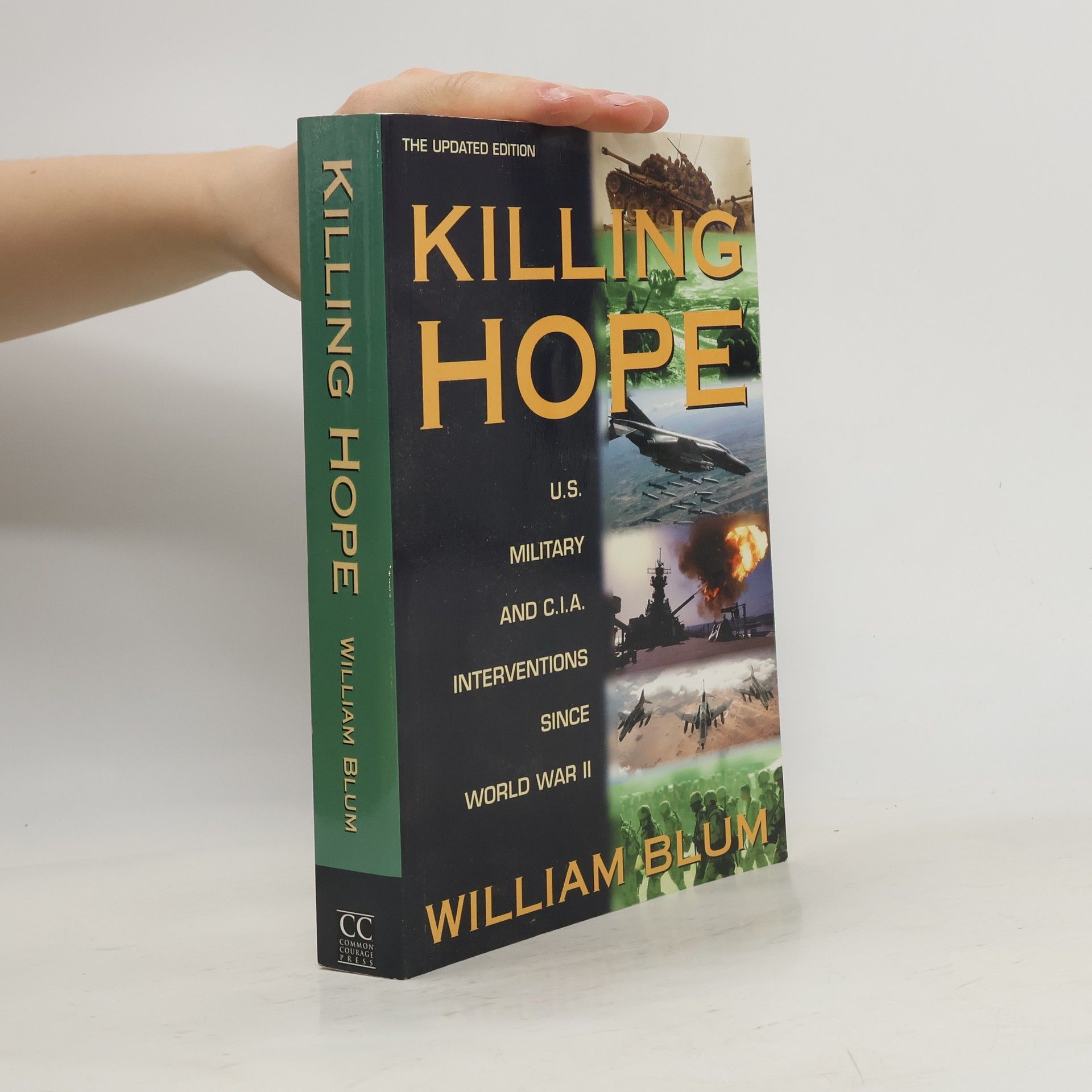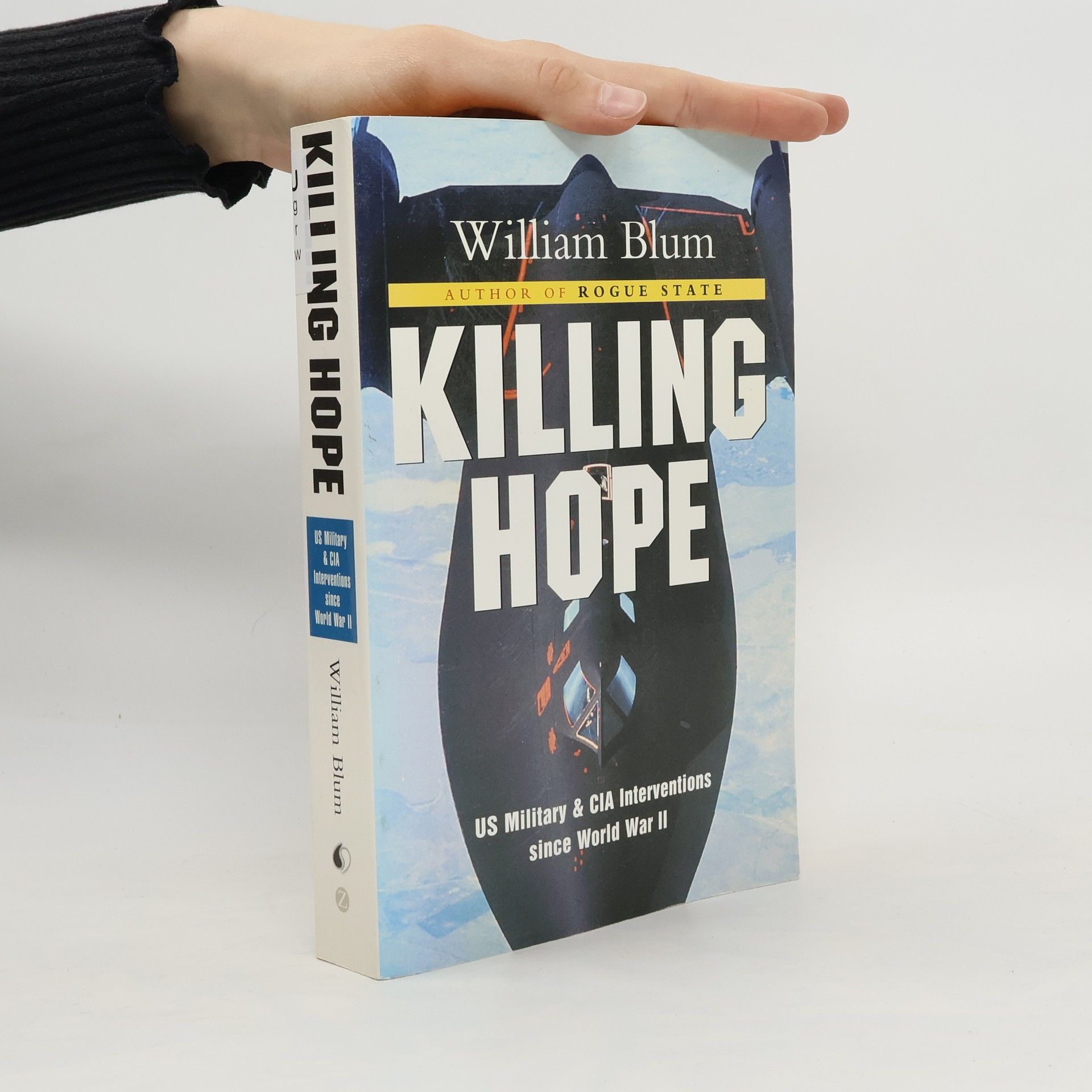'A fireball of terse information.'Oliver Stone'A remarkable collection. Blum concentrates on matters of great current significance, and does not pull his punches. They land, backed with evidence and acute analysis.'Noam ChomskyFor over sixty-five years, the United States war machine has been on automatic pilot. Since World War II we have been conditioned to believe that America's motives in 'exporting' democracy are honorable, even noble.In this startling and provocative book, William Blum, a leading dissident chronicler of US foreign policy and the author of controversial bestseller Rogue State, argues that nothing could be further from the truth.Moreover, unless this fallacy is unlearned, and until people understand fully the worldwide suffering American policy has caused, we will never be able to stop the monster.
William Blum Book order (chronological)
A Jewish-American writer and critic of U.S. foreign policy, his work challenges established power structures. His writings garnered significant attention when one of his books was recommended by a prominent figure in international terrorism. Blum focuses on exposing the hidden motivations and consequences of American interventions globally. His prose is direct and provocative, urging readers to consider the wider implications of global events.






Killing Hope: U.S. Military and C.I.A. Interventions Since World War II--Updated Through 2003
- 500 pages
- 18 hours of reading
The book provides a critical examination of U.S. foreign policy over six decades, questioning whether the United States truly promotes democracy abroad. William Blum presents a detailed analysis, highlighting the complexities and contradictions in American actions on the global stage. Through a forensic approach, the volume challenges readers to reconsider the narrative surrounding U.S. influence and its implications for democratic ideals.
Blums Klassiker wird jetzt zum ersten Mal in Deutsch vorgelegt. Die Interventionen der USA und des CIA werden Land für Land dargestellt und in ihrem historischen Kontext analysiert. Blum belegt seine Ausführungen mit umfangreichen Quellenangaben. Ein spannendes und erschütterndes Dokument über die Außenpolitik der US- Administration seit dem 2. Weltkrieg. Blum räumt mit falschen Vorstellungen über die hehren Ziele der USA auf. Er entlarvt das Lügengebäude der Interventionsgründe im Sinne der „Demokratie“. Alles nur Vorwände zur Erhaltung hegemonialer Macht.
Il terrorismo degli Stati Uniti contro Cuba
- 266 pages
- 10 hours of reading
Tutto in vendita. Ogni cosa ha un prezzo. Anche noi
- 403 pages
- 15 hours of reading
In questo libro quindici autorevoli giornalisti propongono una visione critica del mercato mondiale. In questo panorama nulla sfugge alla vendita: dalla democrazia all'informazione, dalla natura alla guerra. Tutto ha un prezzo e tutto è merce.
'After reading Rogue State, it is impossible to hang fast to the comforting illusion that the "American way" is some kind of enlightenment.'Will Self'A book of charges to be tied to a paving stone and thrown at the men in Washington.'Independent on SundayRogue State and its author came to sudden international attention when Osama Bin Laden quoted the book publicly in January 2006, propelling the book to the top of the bestseller charts in a matter of hours. It is an essential guide to the crimes and misdemeanours of the world's only superpower.
Killing Hope
- 460 pages
- 17 hours of reading
Is the United States a force for democracy? From China in the 1940s to Guatemala today, William Blum presents a comprehensive study of American covert and overt interference, by one means or another, in the internal affairs of other countries. Each chapter of the book covers a year in which the author takes one particular country case and tells the story - and each case throws light on particular US tactics of intervention.
